Welcome to the Maasai Stoves & Solar Project! Since 2009 we have been the primary focus of the International Collaborative, also known as the ICSEE or the International Collaborative for Science, Education, and the Environment, a non-profit 501(c)(3) organization.
The work of the Maasai Stoves & Solar Project
The Maasai Stoves & Solar Project designs and installs clean-burning and efficient wood-burning stoves, dramatically reducing indoor air pollution and wood fuel consumption.
The stoves have a chimney and are insulated to eliminate burn danger. In addition, the Project installs photo-voltaic electrical systems either as small, single home systems or as a micro-grid serving an entire boma (Maasai family settlement).
Perhaps you are already aware of the danger of smoke in the homes of pastoral people in the developing world, caused by indoor cooking with open fires. This is a profound international health issue that affects millions. In response, the Maasai Stoves & Solar Project designs and installs clean-burning and efficient wood-burning stoves and solar panel-based electrical systems in the homes of the people.
The Maasai Stoves & Solar Project applies core empowerment values to work with all projects, including new livestock practices in response to increasing drought, and water safety.
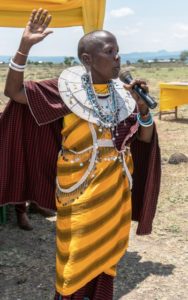
Maasai Leader speaking at Project celebation
Responding to health challenges
Throughout the world, wherever biomass (wood, charcoal, or dung) is burned for cooking there is an epidemic of respiratory disease, eye irritation, and severe forest degradation.
These problems are especially severe for the Maasai of East Africa whose homes are small and poorly ventilated. The open cooking fires in the center of their tiny living spaces not only create indoor air pollution but they also pose a serious threat for burns, especially for toddlers.
Focusing on local solutions and women’s empowerment, the Maasai Women’s Installation Team builds the chimneys and installs the stoves and solar systems. The Maasai Stoves & Solar Project manufactures the stove’s metal parts right in the area, stimulating the economy and empowering the people. We import the photo-voltaic systems but produce stoves locally.
Working together for a better life
Maasai Stoves & Solar Project work provides and opportunity to organize the people, especially Maasai women. The Project works on a growing number of issues that concern the people. Through full community participation, there is a sustained appreciation and enjoyment of working together to make life better. As Project involvements increase, so do opportunities for learning, economic development, and the joy of successful community action.
- Healthy homes—A good cookstove in a Maasai unventilated house requires a chimney. Expert installation is necessary. Teams of women in each village receive training and participate as these experts. In addition, we manufacture ICSEE steel stove fireboxes in our local factory. In the process, a team of metal workers gains skills and become able to do accomplish more in metal work for the community in general.
- Shared electricity and light at night— A micro-grid in a boma requires even more installation. The people need to install light switches, and phone charger installation in each home, underground wires to the houses, and a panel, battery and controller installed in the electric center of the settlement. This is an opportunity to teach about electricity and energy, and to train and organize groups of Maasai experts in solar powered system installation
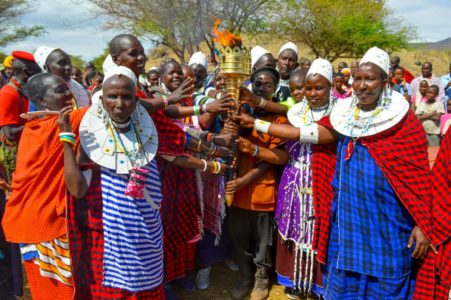
The Tanzanian government recognized the Project with the Uhuru torch award
- Clean water—Polluted surface ponds are the water source for many rural people, leading to serious health challenges. ICSEE designed and installed pond-side chlorination systems. This means Maasai installation teams and chlorination system managers learn to use chemicals in the proper and effective way required for safe water.
- Responding to climate change impact— The loss of the predictability of rain patterns challenges secure grazing for Maasai cattle. In response, the ICSEE constructed construct a demonstration cattle feedlot. We also established a Fodder Factory for necessary supplementation. This means increased employment and cooperation in facility design and development.
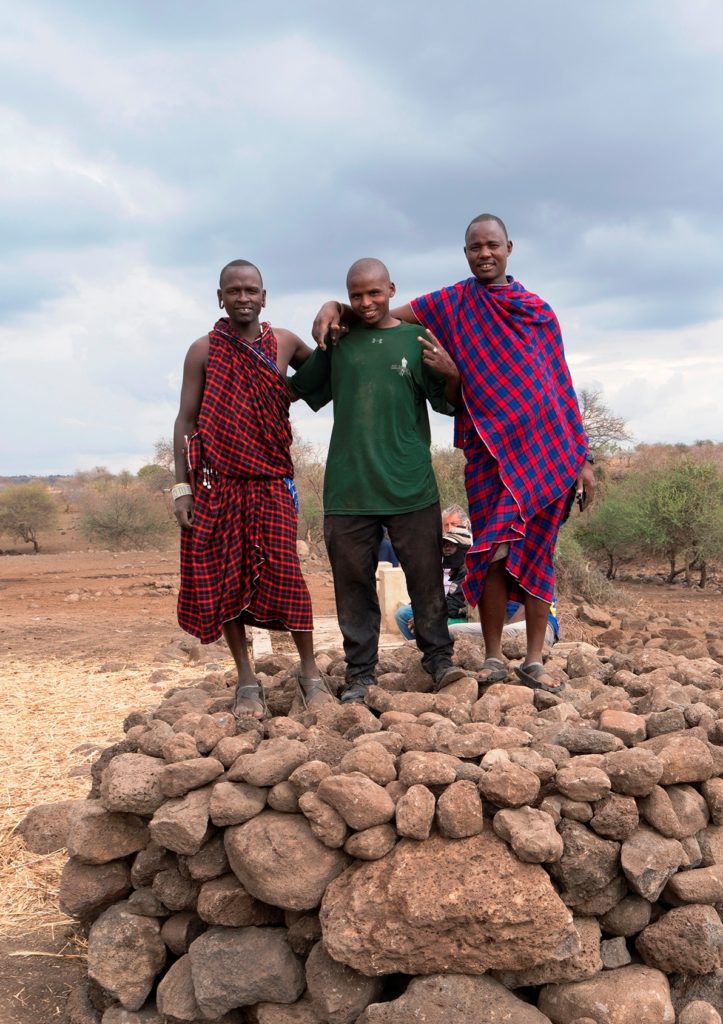
Maasai Stoves & Solar by the numbers
- More than 4300 stoves have been installed including the replacement of older models with the excellent durable ICSEE models three and four
- 22,000 people in healthier homes because of the stoves with excellent smoke-removal efficiency
- Each stove lowers carbon dioxide emissions by 3.6 tons per year
- 46 bomas (family settlements) have solar micro-grids installed. Homes not on micro-grids have single- home solar-electric systems
- Our Project currently serves more than thirty Maasai villages
- 218 women in the Maasai Women’s Pastoralist Organization
- 275 widows organized for life improvement
- 760 goats sold by the widows’ groups
- 1616 books in the Cypress Hill Community Center Library
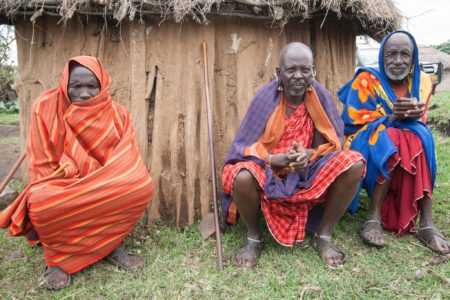
Working with the Maasai men
Bringing light, eliminating indoor air pollution, and providing safe water are all essential to life. Maasai men control the family resources. It is important for the men to realize that these are all essential for a better life for their wives, children, and themselves. They need to be supportive of women’s work and children’s progress.
The Project’s work with the men takes two forms. First, there is a focus on this understanding. The men need to generously allocate the resources necessary to achieve these aims.
The second form relates directly to the men’s livelihood as pastoralists and livestock keepers.
All Maasai families are finding a greater need for money to meet education, health, transport, and lodging expenses. With more utilization of livestock as entries to the money economy, the traditional livestock practices must change. Cattle must be harvested and grazed collectively to make grass-use planning possible. Herd sizes must be kept at manageable levels.
Climate is changing, making traditional weather expectations less reliable. The resulting increase in drought frequency forces Maasai herders to depend on food supplements.
ICSEE is demonstrating and preparing for the need for for adaptation:
- The Manyara Feedlot of the International Collaborative demonstrates the care and feeding of cattle when grass is inadequate in the grazing lands
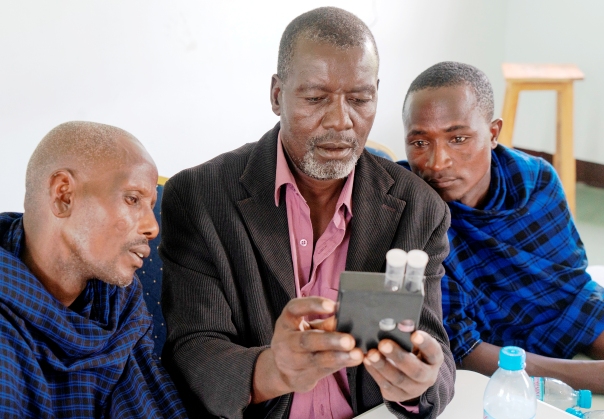
Water managers training workshop
Maasai Stoves & Solar Project achievements
Read more about outcomes and impact here.
- Significant improvements to the health of the people
- Conserving the environment by lessening amount of wood fuel needed, through stove efficiency
- Economy stimulated through large-scale purchases from local businesses
- Project leadership capacity developed in the Maasai communities
- Women broaden skills and capabilities and become leaders of new powerful activities
- Applying known successful technologies, such as water chlorination, guarantees benefits
- Stove designed in the field results in the right design, eliminating stove abandonment
- Livestock management innovations and modeling experiments help prepare adaptations to a changing environment and social structure
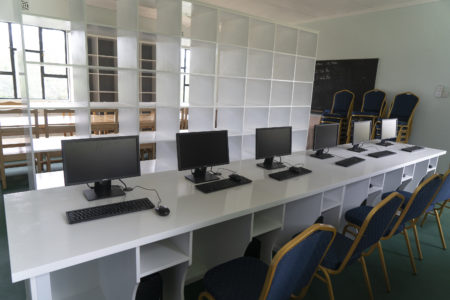
Cypress Hill Institute
The new ICSEE facility at Cypress Hill is a valuable Community Resource Center. The buildings rest on two and a half acres and include a Library for teachers, students, and the public. A Computer Center includes six computers linked to the internet. There is a classroom facility for short training workshops and a nicely furnished hostel. It houses participants in residential training workshops requiring overnight stays or gives lodging for student groups moving through the area.
The outdoor spaces include a playground for children and a restaurant with a pleasant outdoor patio and meeting space.
Staff and resources
Monduli Town, Arusha is home to Maasai Stoves & Solar Project headquarters, with a Project Hub in Mto wa Mbu. Project work takes place in Monduli, Longido, and Ngorongoro districts.
Transportation resources include a Land Cruiser, a Land Rover and two small Suzuki sedans in the work. We also have a tractor and a small freight motorcycle.
- Each participating village has a team of five to fifteen women who are expert stove installers
- Each group of participating villages is overseen by a staff person of the Project. They are informed of any problems with the stoves or solar systems in the village and help solve them. They bring new stove orders to the Project so that installations continue as households become ready for them
- A team of twenty men and women are the expert micro-grid installers. Once arrangements are confirmed with the settlement owner, the team can install a micro-grid in one day
- There 240 women who are expert stove installers and members of the Monduli Pastoralist Women’s Organization (MPWO). The MPWO has a cattle fattening business for shared profit.
- Five workers manufacture the metal firebox parts at the Project Factory
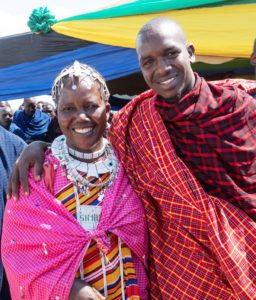
Celebrating project success
Meet the people of the Maasai Stoves & Solar Project
Most importantly, The Maasai Stoves & Solar Project strives to enable people in rural Africa to improve their health and quality of life, while improving the environment for all.
Meet the people of the Maasai Stoves & Solar Project including customers and people served, Tanzanian project leaders, manufacturing teams, women’s installation teams, our president and board of advisors, donors, supporters, and you!
Read about how our Project works. We invite you to explore the aims, challenges, and accomplishments of the Project. Learn how you can play a critical role in this work.
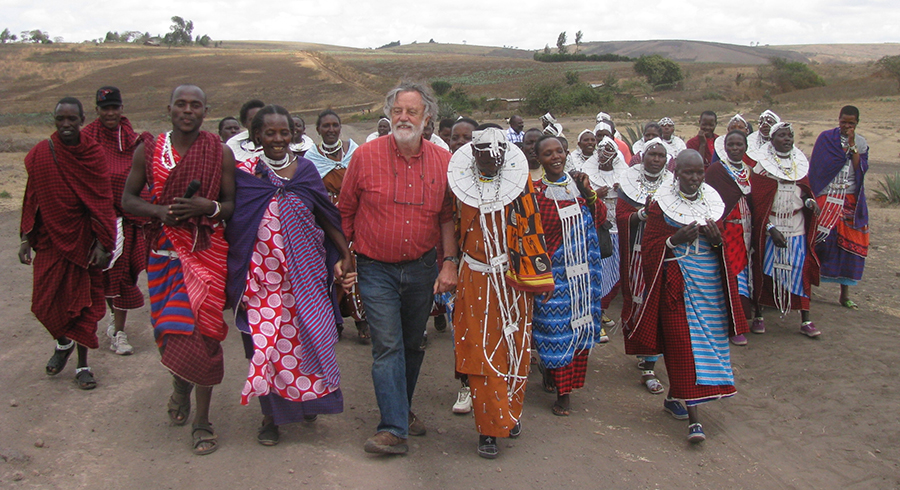
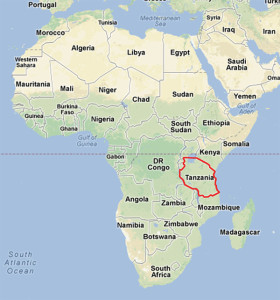
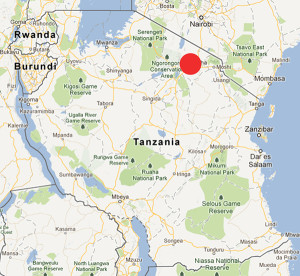
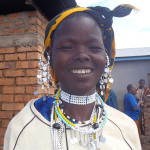

 International Collaborative for Science, Education, and the Environment
International Collaborative for Science, Education, and the Environment